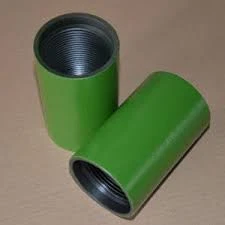- Afrikaans
- Albanian
- Amharic
- Arabic
- Armenian
- Azerbaijani
- Basque
- Belarusian
- Bengali
- Bosnian
- Bulgarian
- Catalan
- Cebuano
- Corsican
- Croatian
- Czech
- Danish
- Dutch
- English
- Esperanto
- Estonian
- Finnish
- French
- Frisian
- Galician
- Georgian
- German
- Greek
- Gujarati
- Haitian Creole
- hausa
- hawaiian
- Hebrew
- Hindi
- Miao
- Hungarian
- Icelandic
- igbo
- Indonesian
- irish
- Italian
- Japanese
- Javanese
- Kannada
- kazakh
- Khmer
- Rwandese
- Korean
- Kurdish
- Kyrgyz
- Lao
- Latin
- Latvian
- Lithuanian
- Luxembourgish
- Macedonian
- Malgashi
- Malay
- Malayalam
- Maltese
- Maori
- Marathi
- Mongolian
- Myanmar
- Nepali
- Norwegian
- Norwegian
- Occitan
- Pashto
- Persian
- Polish
- Portuguese
- Punjabi
- Romanian
- Russian
- Samoan
- Scottish Gaelic
- Serbian
- Sesotho
- Shona
- Sindhi
- Sinhala
- Slovak
- Slovenian
- Somali
- Spanish
- Sundanese
- Swahili
- Swedish
- Tagalog
- Tajik
- Tamil
- Tatar
- Telugu
- Thai
- Turkish
- Turkmen
- Ukrainian
- Urdu
- Uighur
- Uzbek
- Vietnamese
- Welsh
- Bantu
- Yiddish
- Yoruba
- Zulu
Understanding the Concept and Applications of Bull Plug in Various Industries
Understanding Bull Plug Definition and Applications
In the realm of plumbing and mechanical systems, the term bull plug frequently emerges, often surrounded by confusion due to its technical nature. To elucidate this concept, we will define bull plugs, explore their purposes, and discuss their applications in various industries.
A bull plug is defined as a type of plug designed to seal off the end of a pipe or fitting. Unlike standard plugs that may have a smooth exterior, bull plugs usually feature a rounded, or bull-like, shape on the end. This rounded design allows for a robust seal that can withstand pressure and prevents leakage, making bull plugs essential components in numerous applications.
Understanding Bull Plug Definition and Applications
Bull plugs are manufactured in various materials, including metal, rubber, and plastic, which enhances their versatility. The choice of material often depends on the specific application and the type of fluid or gas that the bull plug will contain. For example, in oil and gas industries, metallic bull plugs made from steel might be preferred due to their durability and ability to withstand high pressures. Conversely, in less demanding environments, rubber or plastic bull plugs might be utilized for their ease of installation and cost-effectiveness.
bull plug definition

Moreover, bull plugs are vital in hydraulic systems. These systems often involve high-pressure fluids, and using an appropriate bull plug ensures that the lines remain closed and secure when not in operation. The ability to effectively seal these systems is crucial for maintaining efficiency, safety, and functionality.
In addition to plumbing and hydraulic systems, bull plugs find their usages in various manufacturing processes. For instance, during the testing of pipelines, bull plugs are employed to isolate sections of the pipeline for pressure tests. They can help identify leaks and ensure the integrity of the piping before the system is put into service.
Another notable application of bull plugs is in the field of aviation and automotive industries. These industries utilize bull plugs to seal off openings in fuel lines or hydraulic systems during manufacturing and maintenance. This practice helps prevent contamination and maintains the cleanliness necessary for safe operation.
Furthermore, the installation of bull plugs can be a straightforward process, often requiring just a wrench for tightening. This ease of use lends itself to their popularity among contractors and maintenance personnel. Once installed, they can provide long-lasting seals that require minimal upkeep.
In conclusion, the bull plug, despite its simple appearance, plays a pivotal role in various fields, from plumbing to aerospace. By serving as effective sealing components, bull plugs ensure the safety, reliability, and efficiency of numerous systems. Understanding their definition, functions, and applications can significantly aid in appreciating their importance in modern engineering and maintenance practices. As industries continue to evolve, the demand for reliable sealing solutions like bull plugs will undoubtedly remain critical, keeping systems running smoothly and safely.
-
Tubing Pup Joints: Essential Components for Oil and Gas OperationsNewsJul.10,2025
-
Pup Joints: Essential Components for Reliable Drilling OperationsNewsJul.10,2025
-
Pipe Couplings: Connecting Your World EfficientlyNewsJul.10,2025
-
Mastering Oilfield Operations with Quality Tubing and CasingNewsJul.10,2025
-
High-Quality Casing Couplings for Every NeedNewsJul.10,2025
-
Boost Your Drilling Efficiency with Premium Crossover Tools & Seating NipplesNewsJul.10,2025







